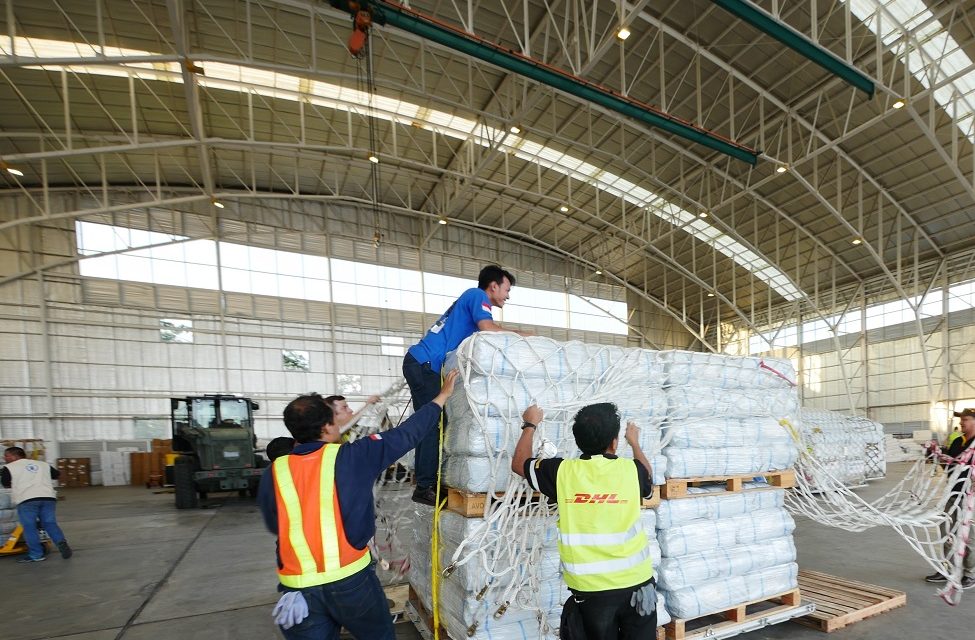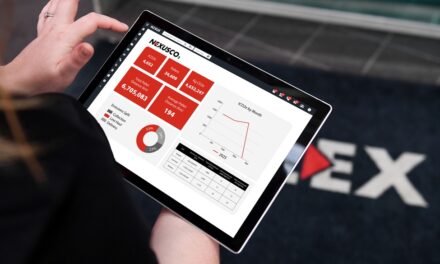
DHL’s new centre in Dubai speeds up global response to humanitarian disasters

DHL Global Forwarding, the Deutsche Post DHL Group’s air and ocean freight specialist, has consolidated its portfolio of humanitarian logistics services within its first Global Competence Centre for Humanitarian Logistics, designed to meet growing global demand for these logistics services.
The Centre will see close coordination across all DHL business divisions to provide all related services and products, to meet customers’ needs.
Commenting on the launch, Amadou Diallo, CEO, DHL Global Forwarding, Middle East and Africa, said: “The impact of conflicts and natural disasters on the world is evident and at DHL Global Forwarding, we have the capability, expertise and global network to render resilient logistics support to organisations who are highly committed to ensure that critical resources are delivered, to meet the needs of those who require them.”
The Centre offers non-governmental organisations, aid agencies, and their suppliers and manufacturers a broad range of services including air and ocean freight, customs clearance, warehousing and local distribution of humanitarian shipments.
These services will be backed by control tower and data analytics services designed to offer heightened levels of freight visibility for humanitarian situations of any level of urgency and complexity.
Organisations can also use the Centre to tap into DHL Global Forwarding’s global network of freight connections for rapid, efficient transport of resources; as well as sector-specific services including temperature-controlled and cold-chain shipments for life sciences and healthcare – critical for public health assistance projects involving the long-term delivery of medicines and medical equipment to developing areas.
With its geographical location and longstanding reputation as a cluster for global aid and relief organisations, Dubai currently plays host to several major logistics hubs including the International Humanitarian City, the largest humanitarian hub worldwide from which nine United Nations (UN) agencies and 48 NGOs currently run logistics operations.
The Center will play the pivotal role of coordinating humanitarian logistics services globally, by leveraging expertise in regional hubs in Sub-Saharan Africa and Europe – to optimise the delivery schedule and routes to areas which need the resources.
DHL has extensive experience in disaster management activities – which includes the deployment of its Disaster Response Teams (DRT) consisting of DHL experts to provide on-ground logistics support in natural disaster zones; and the Get Airports Ready for Disasters (GARD) program, which runs joint workshops with the UN Development Programme to prepare local airport management for the logistical issues associated with natural disaster situations.
Fatima Ait Bendawad, a DHL manager with 15 years of experience in creating, providing and implementing solutions for complex humanitarian operations, has been appointed to lead the Global Competence Center for Humanitarian Logistics.
She says: “The level of preparedness – whether it be expedited customs clearances, readiness to handle dangerous goods like chemicals or medicines, or processes for on-ground collaboration between multiple agencies2 – directly correlates with the efficiency of humanitarian logistics. Our work on the front line, has helped us build and maintain familiarity with the nuances of compliance, regulation and international standards that apply to movements of critical goods.”
“Humanitarian logistics requires dedication and coordination with different stakeholders to get critical goods to those in need, gaining trust and working with numerous partners to coordinate shipments in situations which often require short turnaround times,” said Massar Diop, Director of Humanitarian Logistics, DHL Global Forwarding.
With more than a decade of experience working in this field, Massar has built a strong network of relationships with key UN agencies, NGOs and suppliers, to provide the best solutions to their needs, in different parts of the world.












